META Coexistence (Coex) facilitates the simultaneous operation of the WhatsApp Business App and the Cloud API. This key feature allows user to migrate to an API-based solution without deactivating their current account, thereby ensuring the preservation of their chat history.
This provides major benefits:
- Flexibility and Cost-Efficiency: Users can use for personal, one-on-one chats while using the powerful API for automation, chatbots, and high-volume broadcasts. This mix optimizes costs.
- No Lost Data: Businesses can adopt the API without deactivating their account. All messages are “mirrored” and synced between both platforms, preserving conversation history. All contacts are imported automatically. You can also choose to import up to 6 months of 1:1 chats and 2 weeks of multi-media history (group chats are not imported).
- Scalability & Professionalism: Companies can manage a high volume of messages using the API and still maintain a single, professional number for a seamless customer experience.
- A valid Facebook Business account.
- An active WhatsApp Business App phone number.
- The Meta Verification process has been completed (phone number verification and business verification).
Integration Process
Step 1: Access Integrations Navigate to the “Integrations” dashboard. Select WhatsApp Business App.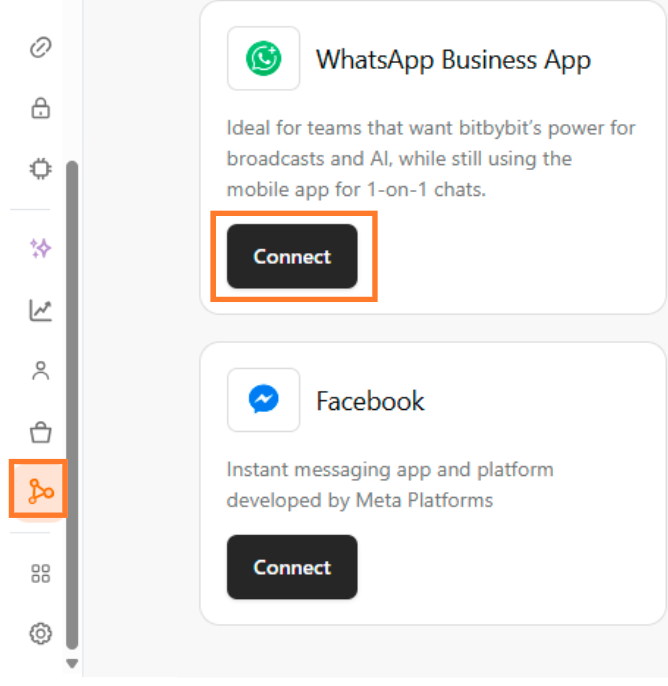
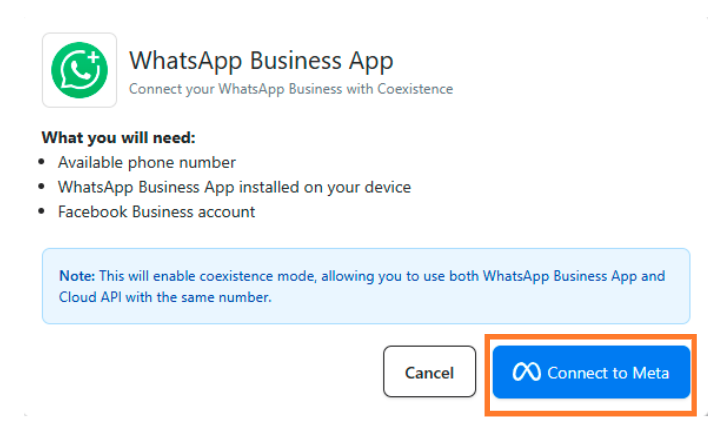
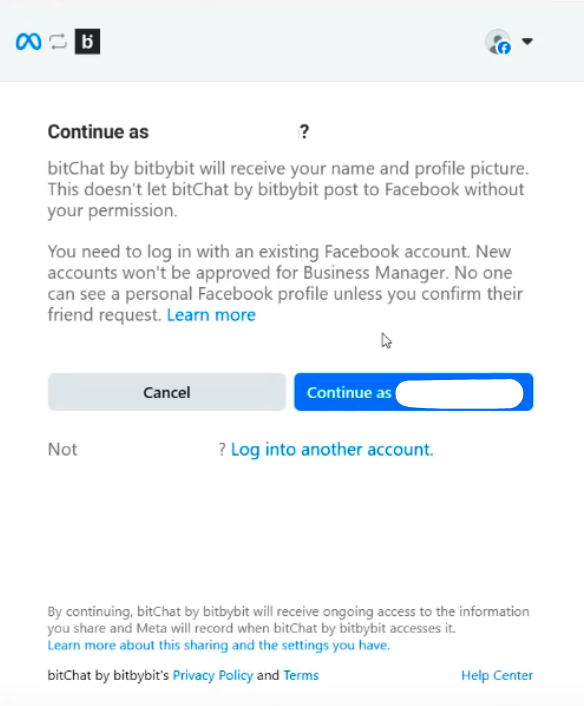
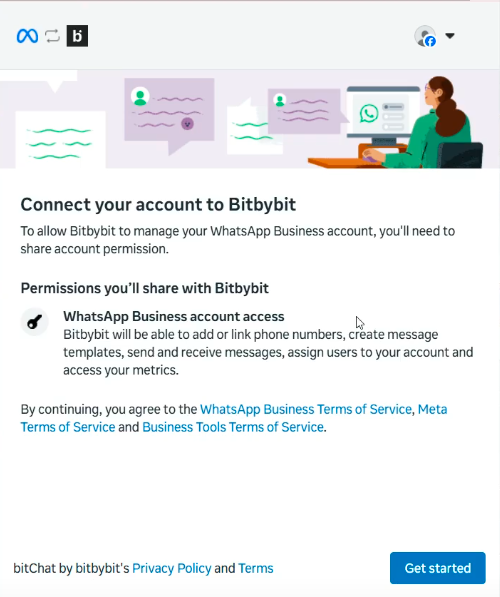
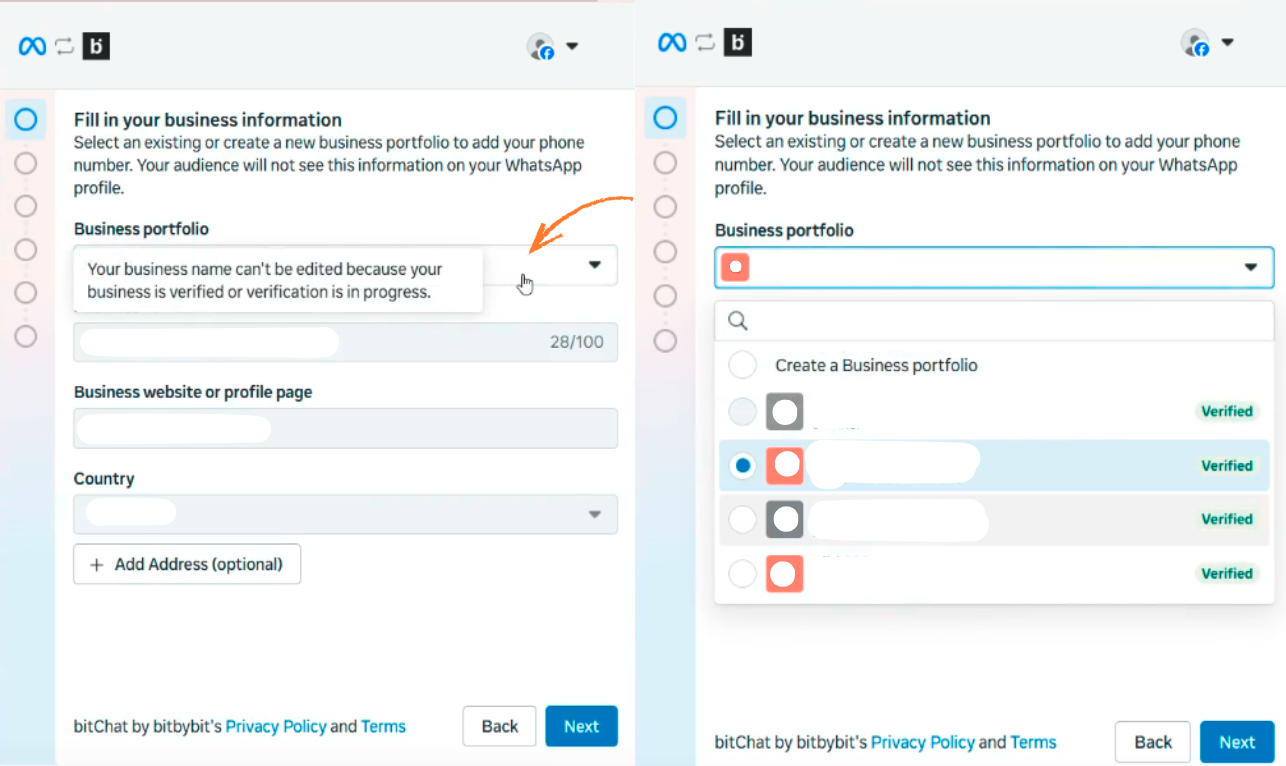
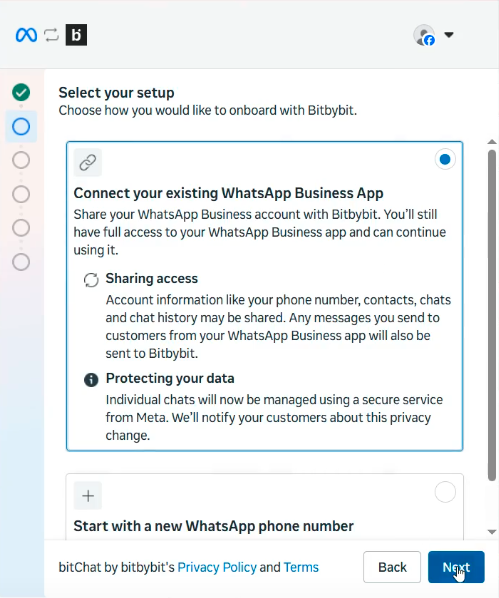
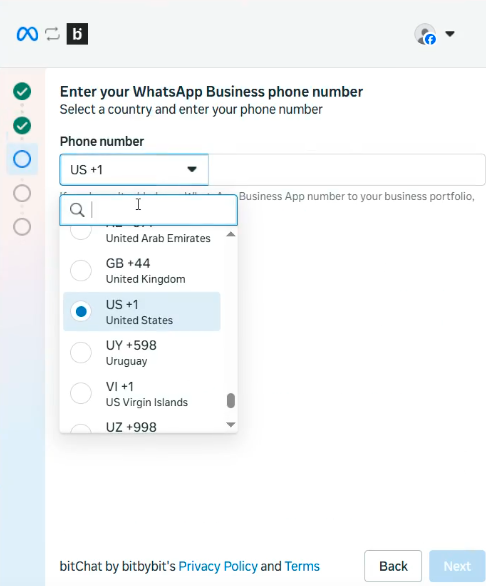
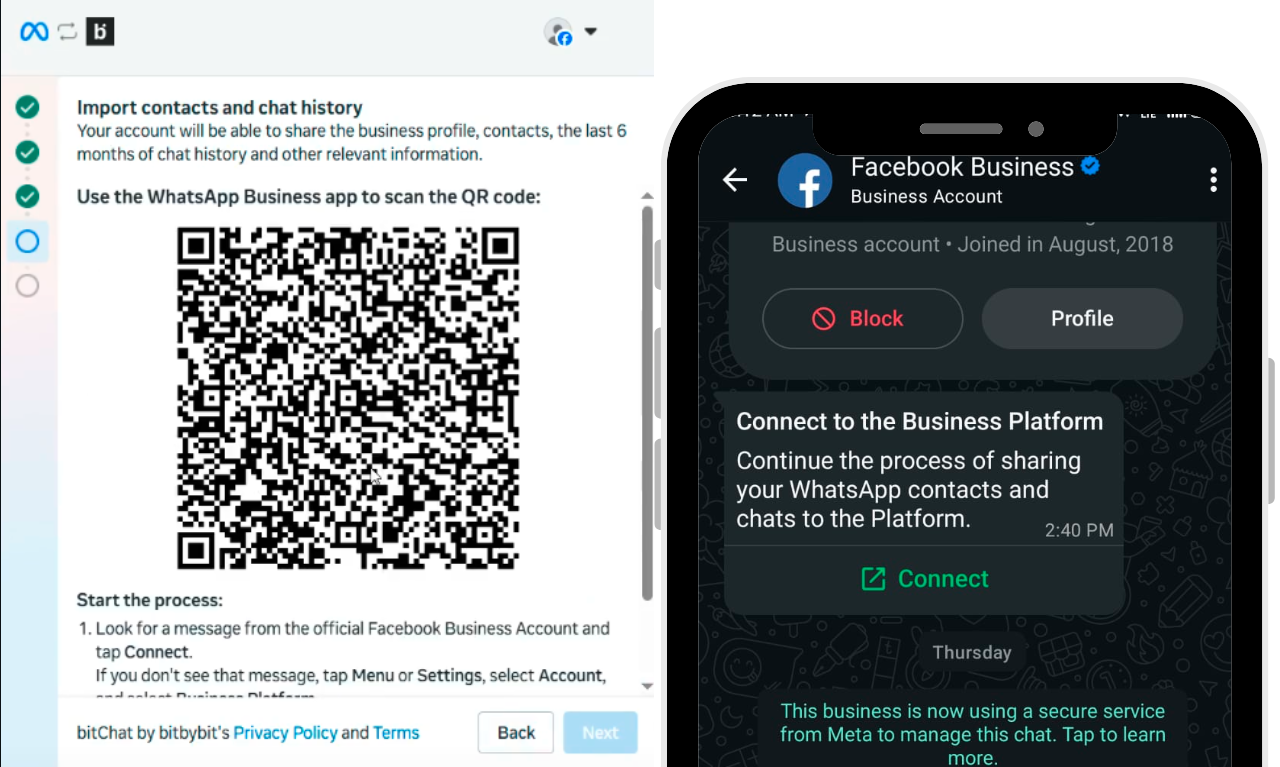
- Look at your screen for the “Share Contacts and Chats” pop-up, which will display a QR code.
- Go to your WhatsApp Business App and find the message from Facebook Business.
- Open the message, click “Connect,” and then confirm by clicking “Connect to the Business Platform.”
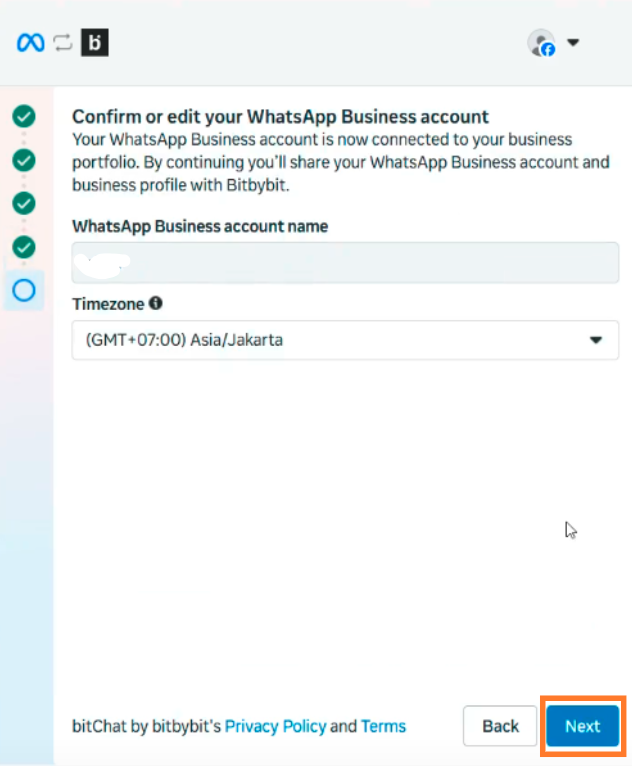
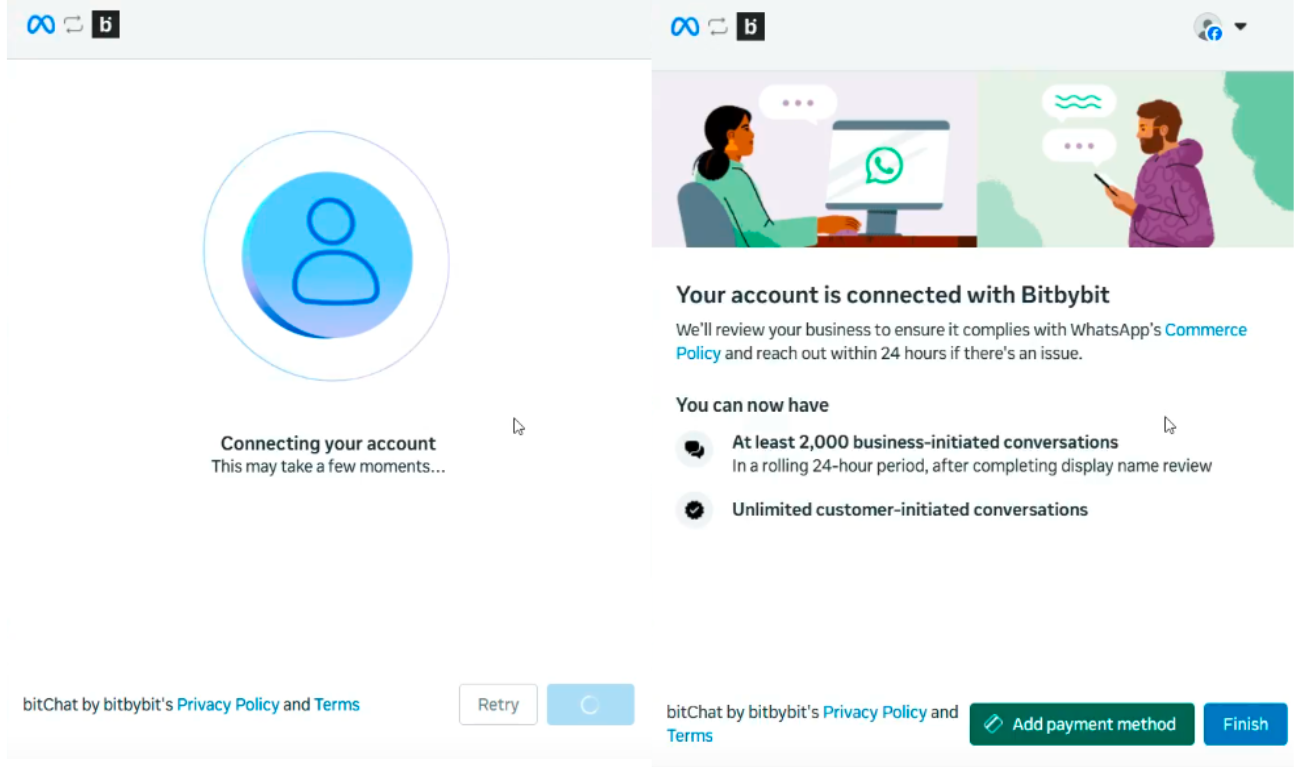
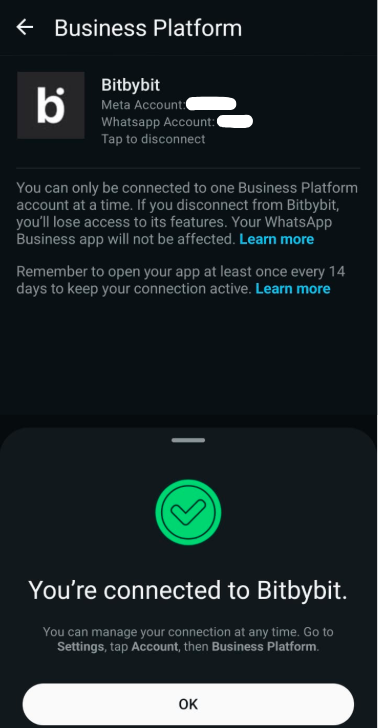
Feature Comparison
The table below outlines the features available for each type of WhatsApp business setup: the standard WhatsApp Business App, the WhatsApp Business App connected to Cloud API (Coexistence), and the fully integrated WhatsApp Cloud API. It also highlights how certain features change once a business is onboarded to the Cloud API.| Existing feature on the WhatsApp Business App | Changes to features on the WhatsApp Business App AFTER onboarding to Cloud API (Coexistence) | Is the WhatsApp Business app feature supported on Cloud API? |
|---|---|---|
| Individual (1:1) chats | Message Edit/Revoke is no longer supported. | Supported. All chat messages in the most recent 6 months can be synchronized. Messages sent and received are mirrored between the Cloud API and WhatsApp Business app. |
| Contacts | No change. | Supported. All contacts with a WhatsApp number can be synchronized. |
| Group chats | No change. | Not supported. Group chats will not be synchronized. |
| Disappearing messages | Disappearing messages will be turned off for all individual (1:1) chats | Not supported. |
| View once message | View once messages will be disabled for all individual (1:1) chats | Not supported. |
| Live location message | Live location messages will be disabled for all individual (1:1) chats | Not supported. |
| Broadcast lists | Broadcast list will be disabled. Business will not be able to create new Broadcast Lists. Existing Broadcast Lists will become read-only. | Not supported. |
| Voice and video calls | No change. | Not supported. |
| Business tools (eg. catalog, orders, status) | No change. | Not supported. |
| Messaging tools (eg. marketing messages, greeting message, away message, quick replies, labels) | No change. | Not supported. |
| Business profile (eg. business name, address, website) | No change. | Not supported. |
| Channels | No change. | Not supported. |
| Individual (1:1) chats | Message Edit/Revoke is no longer supported. | Supported. All chat messages in the most recent 6 months can be synchronized. Messages sent and received are mirrored between the Cloud API and WhatsApp Business app. |

